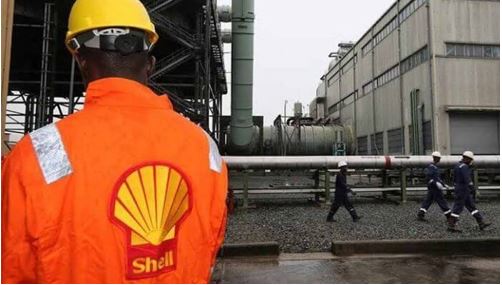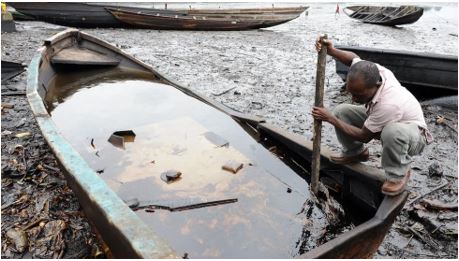IN THIS ARTICLE WE WILL BE DISCUSSING ABOUT SHELL AND OIL SPILLS IN NIGERIA AND THE SUPREME COURT CASE ABOUT SHELL NIGERIA.
In the 1990s, tensions arose between the native Ogoni people of the Niger Delta and Shell. The concerns of the locals were that very little of the money earned from oil on their land was getting to the people who live there, and the environmental damages caused by the recurring sabotage of pipelines operated by Shell. In 1993 the Movement for the Survival of the Ogoni People (MOSOP) organized large protests against Shell and the government, often occupying the company production facilities.
Shell withdrew its operations from the Ogoni areas. The Nigerian government raided their villages and arrested some of the protest leaders. Some of these arrested protesters, Ken Saro-Wiwa being the most prominent, were later executed, against widespread international opposition from the Commonwealth of Nations and human rights organisations.
READ: FG Warns Oil Thieves, Lauds Security Outfit Over Impounded Vessel
The ethnic unrest and conflicts of the late 1990s (such as those between the Ijaw, Urhobo and Itsekiri), coupled with a peak in the availability of small arms and other weapons, led increasingly to the militarization of the Delta. By this time, local and state officials had offered financial support to those paramilitary groups they believed would attempt to enforce their own political agenda. Conflagrations have been concentrated primarily in Delta and Rivers States.
Shell maintained that it asked the Nigerian government for clemency towards those found guilty but its request was declined. A 2001 Greenpeace report mentioned two witnesses for whom the company and the Nigerian military “bribed” by promising money and jobs at the facility. Shell gave money to the military and was blamed for contaminating the Niger Delta with oil. The company denied these claims and implied that MOSOP was an extortionary movement that advocated violence and secession.
READ: oil-industry-in-Nigeria-statistics-facts
In December 2003, Shell Nigeria acknowledged that the conflict in the Niger Delta makes it difficult to operate safely and with integrity and that “we sometimes feed conflict by the way we award contracts, gain access to land, and deal with community representatives”, and that it intends to improve on its practices. In 2009, Shell offered to settle the Ken Saro-Wiwa case with US$15.5 million while denying any wrongdoings and calling the settlement a humanitarian gesture.

Shell and oil spills in Nigeria
Nigerian government regulations legally require companies to report a spill within twenty-four hours of the spill, then conduct a JIV report within the next twenty-four hours following. In addition, the repair and clean-up of the spill is also required to begin within the first twenty-four hours of when the spill was discovered. Shell’s response time has been reported to rarely be within these regulations. In only 25.7% of the spills that have occurred since 2011, Shell has conducted JIV reports within the first twenty-hours of a spill being reported.
READ ON: The Role of Pipelines in the Oil And Gas Industry
Oftentimes, it has been reported that Shell and other oil companies do not begin to clean up the spills until after the reports are conducted delaying the response time even further. Shell does state that the pipelines are shut off in the event of a spill being reported, however, the oil that has already been spilled is still left in the environment. For example, 252 days passed before Shell visited the site of an oil spill that was reported in February 2016. Another case in May, 2015 took Shell 190 days to visit after a report had been made.
Both spills were reportedly in areas that were easily accessible providing limited excuse for the companies delayed responses. On average, Shell took around 9.68 days to respond and conduct JIV reports for spills that occurred in water and around 5.35 days to respond and conduct JIV reports for spills that occurred on land. Underreporting on the amount of oil spilled during each incident can also be attributed to the high volatility of oil resulting in the evaporation of about 50% of the exposed oil within twenty-four to forty-eight hours of the initial spill.

